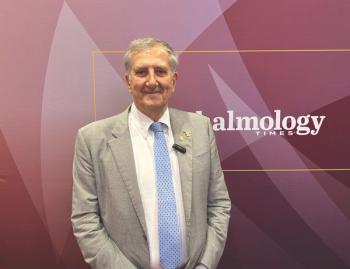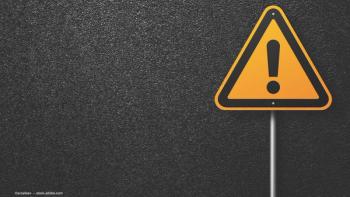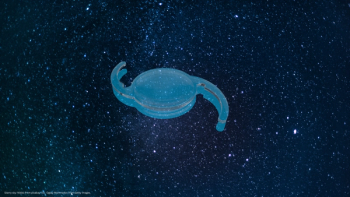
Managing MGD still a challenge
In this article, Dr Akpek discusses the pros and cons of currently available options in the management of meibomian gland dysfunction.
However, while a wide variety of therapeutic interventions are available for MGD, effective management remains a challenge.
Publication in 2011 of the proceedings from the International Workshop on Meibomian Gland Dysfunction ('MGD Workshop'), a project organized by the Tear Film Society and Ocular Surface Society, has raised awareness of MGD and the importance of identifying patients affected by what is considered to be the leading cause of dry eye.
"MGD is a chronic disease that can cause bothersome symptoms and serious corneal disease if there is progression to permanent gland atrophy," said Dr Akpek, professor of ophthalmology and rheumatology, and director, ocular surface disease and dry eye clinic, Wilmer Eye Institute, Johns Hopkins University School of Medicine, Baltimore, Maryland, USA.
Lid hygiene
"Lid hygiene measures are definitely effective in the treatment of MGD, and various other interventions, including pharmaceutical treatments, have been shown to work when evaluated over a short testing period," Dr Akpek said. "However, effective management of MGD requires adherence to maintenance therapy, and that is probably why it is such a difficult therapeutic problem."
Lid hygiene measures using eyelid warming and mechanical lid hygiene to express MG secretions are widely considered effective for MGD even though there is no standard technique or studies comparing specific techniques for lid hygiene.
Nevertheless, it is generally agreed that patients should be advised about lid hygiene and followed for their compliance, Dr Akpek explained.
"There are some newer device-based approaches for addressing MG obstruction, including a thermal-pulsation device, intense pulsed light treatment and gland probing," she said. "These interventions have been shown to lead to some improvement.
"However, any remission is not permanent, and these interventions are expensive and often not covered by insurance," she added.
Other therapies
Artificial lubricant therapy has been more widely studied for treating aqueous tear deficiency than for evaporative tear deficiency that occurs with MGD. Based on available evidence, it may be reasonable to recommend use of higher-viscosity products to patients with MGD, Dr Akpek noted.
Topical lipid supplements in various formulations have been demonstrated to improve the signs and symptoms of MGD, probably by improving tear film stability. Topical antibiotics (azithromycin and metronidazole) and oral antibiotics (tetracycline derivatives) are also used and may provide benefit through both antimicrobial and anti-inflammatory actions.
Though there is some evidence of their efficacy, more solid proof from trials is missing, she emphasized.
Lid scrubs containing tea tree oil, which eradicates Demodex, are also marketed for the treatment of MGD based on a suggested pathophysiologic role of infestation with these mites. Understanding of the relationship between Demodex and MGD is incomplete and there is a lack of good scientific evidence supporting use of tea tree oil scrubs for MGD treatment alone.
Tea tree oil also has antibacterial, antifungal and anti-inflammatory properties that may be beneficial, and it has been shown to reduce symptoms of surface inflammation.
Topical corticosteroids have also been used as a treatment for MGD. Their use is controversial because of the potential for complications, but topical corticosteroids may be considered to have a role in managing acute inflammation, such as in patients with marginal hypersensitivity keratitis, or as an intralesional injection for chalazia.
Oral supplementation with essential fatty acids, including omega-3 and omega-6 fatty acids, is another popular recommendation for MGD management and also somewhat controversial, because there is conflicting evidence on the efficacy of these supplements and no clear information on necessary doses.
Newsletter
Get the essential updates shaping the future of pharma manufacturing and compliance—subscribe today to Pharmaceutical Technology and never miss a breakthrough.




























